-
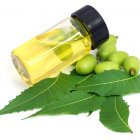 Make the Miraculous Neem Oil a Part of Your Daily Life: Discover the Numerous Uses of Neem Oil and How It Can Give You a Radiant Skin, Lustrous Hair and Overall Health and Wellbeing! (2021)
Make the Miraculous Neem Oil a Part of Your Daily Life: Discover the Numerous Uses of Neem Oil and How It Can Give You a Radiant Skin, Lustrous Hair and Overall Health and Wellbeing! (2021)
-
 Acne: Causes and Remedies! Get Rid of Acne with These 10 Potent Home Remedies for Pimples!
Acne: Causes and Remedies! Get Rid of Acne with These 10 Potent Home Remedies for Pimples!
-
 यहाँ शीर्ष 10 प्राकृतिक घरेलू उपचार हैं, ये आपको देंगे एक साफ और गोरी त्वचा। गर्मियों में त्वचा की समस्याओं के घरेलू उपचार के साथ। (2021)
यहाँ शीर्ष 10 प्राकृतिक घरेलू उपचार हैं, ये आपको देंगे एक साफ और गोरी त्वचा। गर्मियों में त्वचा की समस्याओं के घरेलू उपचार के साथ। (2021)
What is Vitamin C Serum?
Vitamin C is one of the most important nutrients which is essential for our growth and development. We intake Vitamin C daily by consuming vegetables and fruits like broccoli, pineapples, oranges, and many more. This nutrient is key in forming and repairing body tissues. It has also been found that Vitamin C is present naturally on our skin, providing us with a host of benefits like increasing the production of collagen and antioxidant levels, protecting the skin against the harmful UV rays.
Vitamin C can also be applied topically by applying Vitamin C serum. What is it, you ask? Well, Vitamin C serum is a skincare product that has a similar consistency to a gel and can be applied like a cream on your skin. This topical application gives us another way to reap the benefits of Vitamin C, and you should include it in your skincare routine. Let us look into Vitamin C serum in closer detail.
The Benefits of Vitamin C Serum
Acts as Sunscreen
Sun damage is one of the most debilitating conditions that our skin can suffer. Not only does it make our skin look dull and spotted, but it also brings with it many health issues like sunburn, rashes, and even skin cancer. Sun damage is caused by free radicals or atoms that have a missing electron. These free radicals try to compensate what they lack by “stealing” an electron from another atom. This phenomenon causes sun damage. Vitamin C is an antioxidant. It counteracts the free radicals by giving them that missing electrons, thus rendering them harmless. So, we see that Vitamin C serum is an effective sunscreen.
Prevents Premature Ageing
You cannot expect Vitamin C to remove the wrinkles that come naturally as a result of ageing, but you can prevent the premature occurrence of wrinkles by regular application of Vitamin C serum. Premature wrinkles can come as a result of exposure to the sun, and as we saw in the previous paragraph, Vitamin C serum is a good sunscreen to protect you from that exposure. Besides, it stimulates the production of collagen, which is a protein that provides elasticity to the skin. This keeps the skin from sagging and prevents the premature appearance of wrinkles.
Gives Even Skin Tone
The conditions responsible for an uneven skin tone are inflammation, hyperpigmentation, dark circles, and spots caused by sun damage. The redness caused by inflammatory conditions can be treated by Vitamin C for a more even-toned complexion. When melanin is produced more in certain areas of the skin, giving rise to dark spots, it is called hyperpigmentation.
It can appear in the form of age spots, sun spots, melasma, and acne scars. Vitamin C serum can treat these conditions by impeding the production of melanin - the protein responsible dark complexions. This underproduction of melanin can fade dark spots and even out the skin tone. In the same way, it reduces dark circles.
Boosts Wound Healing
Vitamin C serum boosts overall wound healing. Research has found that one of the main reasons for poor wound healing is decreased collagen production. As already stated that Vitamin C serum promotes the growth of collagen, it can effectively improve your body’s wound healing capability besides improving your skin’s appearance. A diet with an adequate amount of Vitamin C in it will help you maintain healthy skin and heal wounds quickly. Supplement that Vitamin C intake with applying Vitamin C serum regularly.
How to Apply Vitamin C Serum
There are two critical aspects regarding Vitamin C serum that you must know before you start applying them.
The first is that you must always store the serum in a refrigerator after putting it in a tightly closed bottle. This is done to increase the shelf life of the serum and keep it fresh for as long as possible. Vitamin C oxidizes on coming in contact with oxygen. Keeping it tightly closed in a bottle and the refrigerator will prevent its exposure to oxygen.
The second thing to keep in mind is always to test the pH value of the serum. The ideal pH level of a Vitamin C serum must be between 3 and 4. You can test your serum by using pH indicator strips (or if your serum is store-bought, then just check the label). If the pH value is lower than the ideal, then add a pinch of baking soda to the concoction. If it is way above the ideal, then it is time to discard it and make a fresh one. These two considerations are critical if you want to get the best results from the serum.
You must always apply Vitamin C serum after cleansing and toning your skin. With this serum, less is more, so use only a few drops of this serum. The best time to apply is at night before going to bed. Put a few drops of Vitamin C serum on alternate nights throughout the year, and you will have clear, spotless, and glowing skin. You can also add a few drops of the serum to your moisturizer and sunscreen.
Make Your Own Vitamin C Serum at Home: 4 Easy Recipes
Recipe 1
Ingredients
- ½ tablespoon of Vitamin C powder
- 1 tablespoon of hot distilled water (not boiling)
How to Make
- Pour a tablespoon of hot distilled water in a small bowl then add the ½ tablespoon of Vitamin C powder in it.
- Mix well until they are well combined. Take a brown or cobalt glass container and put a funnel in the spout.
- Gently pour the concoction into this bottle and set it aside in the refrigerator for two weeks.
This is the recipe for a basic Vitamin C serum. It requires just two ingredients and is very easy to make. Storing it in the cool recesses of the refrigerator keeps the Vitamin C serum fresh so that its potency is not compromised. You might wonder why to prepare such small amounts as is instructed by this recipe. This is to ensure that you get the fresh serum in every application. A large batch of Vitamin C serum will last longer, and hence the freshness of the concoction will decrease. With small amounts, you can make a fresh batch once every two weeks to have a continuous fresh supply.
Recipe 2
Ingredients
- ¼ tablespoon of L- ascorbic acid powder or Vitamin C tablets in powdered form
- 2 tablespoons of distilled water or rose water
- 1 tablespoon of glycerine
- 1 Vitamin E capsule
How to Make
- Take a clean, darkened glass bottle and put the L- ascorbic acid powder or Vitamin C tablet powder in it.
- Gently pour the distilled or rose water in the bottle. Shake the bottle vigorously until the powder is well combined with the water.
- Add the glycerine to the concoction. Puncture a Vitamin E capsule and extract the oil from it. Add this oil to the concoction.
- Shake well until all the ingredients are combined then store the bottle in a cool and dry place away from the sunlight.
The resultant Vitamin C serum of this recipe will give you clear, spotless, and glowing skin. The best time to apply this serum is at night before going to bed. First, cleanse and tone your skin and then apply a few drops of this serum. Follow it up with a moisturiser. Follow this skin care routine every alternate night. You should expect a slight tingling sensation after you start applying, but if the sensation continues after two weeks of application, then discontinue using the serum.
Recipe 3
Ingredients
- 1 tablespoon of Vitamin C powder
- 4 tablespoons of distilled water
- 1 tablespoon of vegetable glycerine
- ¼ tablespoon of Vitamin E oil
- 3 drops of lemon essential oil
- A pinch of baking soda
How to Make
- In a small bottle with darkened glass, add the vitamin C powder and the distilled water.
- Shake well until the above ingredients are thoroughly combined. Then add the glycerine and Vitamin E oil and shake till it is well combined with the concoction.
- Finally, add the lemon essential oil and the baking powder before giving a shake to combine them. Keep the bottle in a cool and dry place to store.
This recipe is an elevation of the second recipe. Both the recipes are almost similar, the only difference being that the latter has two extra ingredients, namely lemon essential oil and baking soda. Vitamin C and E protect, heal, and repair the skin. Additionally, Vitamin E extends the shelf life of the serum. The glycerine moisturizes the skin, and the lemon oil gives you clearer and brighter skin. The baking soda is added to control the acidity of the final product so that people with sensitive skin can use it.
Recipe 4
Ingredients
- 1 tablespoon of Vitamin C powder
- 1 tablespoon of aloe vera gel
- ¼ tablespoon of Vitamin E oil
- 1 tablespoon of filtered water
How to Make
- Take a small bowl and whisk the Vitamin C powder and filtered water in it.
- Then add the aloe vera gel and the Vitamin E oil and give a further until all the ingredients are thoroughly combined.
- Pour the concoction in a small bottle with darkened glass and set aside in a cool and dry place for about two weeks.
This serum should be applied before going to bed. Wash your face and apply toner before putting on a few drops of this serum. In the morning, the serum would have thickened. Rinse it with water before applying a coat of moisturizer.
Keep This in Mind Before You Start Using!
You have read about Vitamin C serum, what its benefits are, how to apply, a few recipes of the serum, and so far, everything is good. Vitamin C serum improves the appearance of skin by protecting it from UV rays, reducing spots, and preventing wrinkles.
But Vitamin C serum has some side effects, and it is better that you know about them as well before applying. Some known side effects of Vitamin C serum are skin irritation and redness. It is normal to experience a slight burning sensation while applying in the first few days, but if that sensation persists even after applying for two weeks, then discontinue using the serum.
Some people have even reported an allergic reaction like hives or swelling after applying Vitamin C serum. There are two things to consider before using a Vitamin C serum - one is the amount of L – ascorbic acid in the serum, and the other is the pH value of the serum. The concentration of L- ascorbic acid in the serum must be 10% at least. Best if it is in the range of 15%- 20%. As for the pH level of the serum, the lower the level, the better will be the absorption of Vitamin C by the skin. If you have normal skin, then make sure that the pH level is around 3.5, and if you have sensitive skin, then the pH level should be between 5 and 6.
-
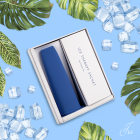 This Summer Pamper Your Skin with Refreshing Ice Therapy Treatment by Isa Beauty
This Summer Pamper Your Skin with Refreshing Ice Therapy Treatment by Isa Beauty
-
 Pamper Your Skin with Honey, a Superfood! 10 Honey Face Packs for Glowing Skin + 3 Tips for Naturally Gorgeous Skin!
Pamper Your Skin with Honey, a Superfood! 10 Honey Face Packs for Glowing Skin + 3 Tips for Naturally Gorgeous Skin!
-
 Does the Appearance of Fine Lines Around Your Eyes and Forehead Give You Stress(2020)? Fret Not, We Will Show You How to Deal with Wrinkles with Home Remedies!
Does the Appearance of Fine Lines Around Your Eyes and Forehead Give You Stress(2020)? Fret Not, We Will Show You How to Deal with Wrinkles with Home Remedies!
-
 What is Spirulina? Discover Everything You Need to Know About Spirulina – How to Use and Store It, Spirulina's Multiple Benefits for Your Skin, Plus, the Best Spirulina Products Available in India (2021)
What is Spirulina? Discover Everything You Need to Know About Spirulina – How to Use and Store It, Spirulina's Multiple Benefits for Your Skin, Plus, the Best Spirulina Products Available in India (2021)
-
 जल्दी चमकदार त्वचा के लिए, कोनसा भोजन पदार्थ अपनाएं,यदि यह आपका खोज का विषय है तो
यहां कुछ आहार की सूचि है,जो सेहतमंद और चमकदार त्वचा के लिए एकदम उत्तम भोजन है,साथ में कुछ घरेलू नुस्खे भी दिए गए है।(2020)
जल्दी चमकदार त्वचा के लिए, कोनसा भोजन पदार्थ अपनाएं,यदि यह आपका खोज का विषय है तो
यहां कुछ आहार की सूचि है,जो सेहतमंद और चमकदार त्वचा के लिए एकदम उत्तम भोजन है,साथ में कुछ घरेलू नुस्खे भी दिए गए है।(2020)
Apply Vitamin C Serum for a Glowing & Youthful Skin!
Vitamin C serum is a versatile product when it comes to skincare. It is an antioxidant that reduces the level of free radicals in the body, which are responsible for breaking collagen and elastin present in our skin, making the skin look saggy and with wrinkles. Vitamin C serum is known to help with this, and the final result of regular application of the serum is glowing and youthful skin!







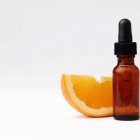


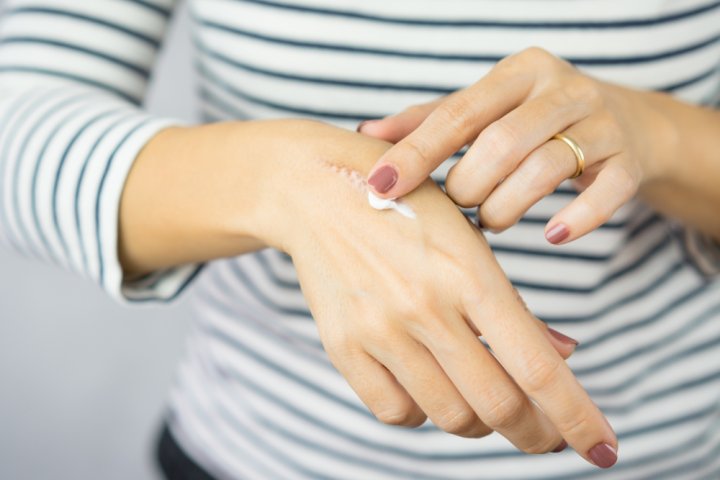
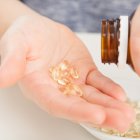
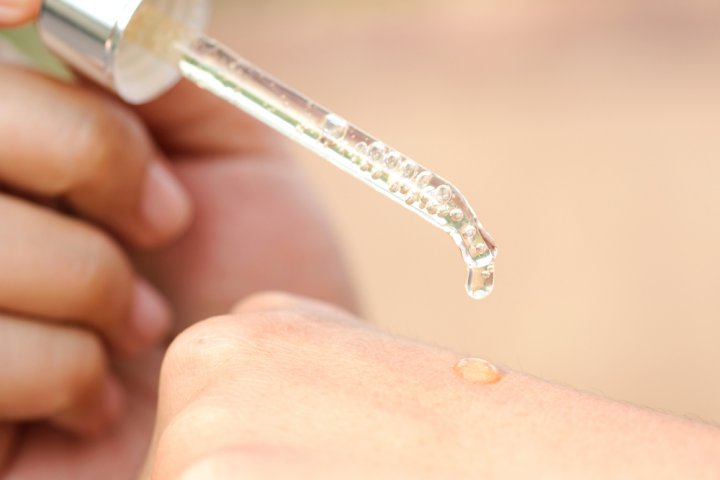

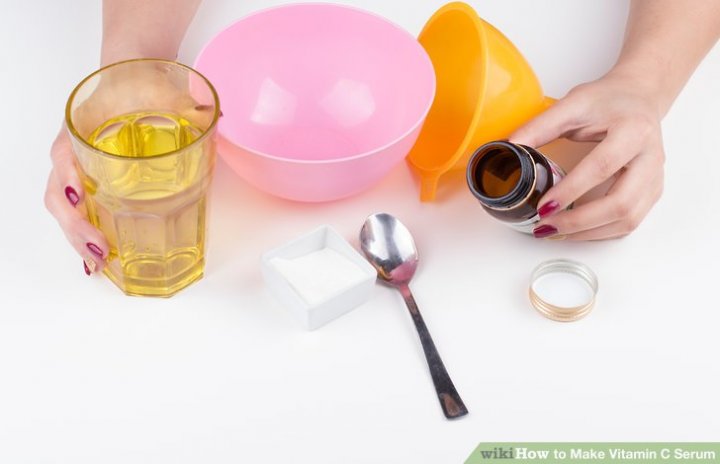

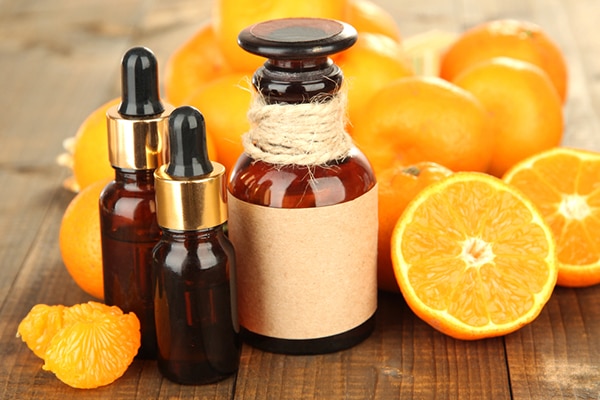
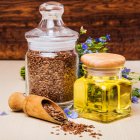
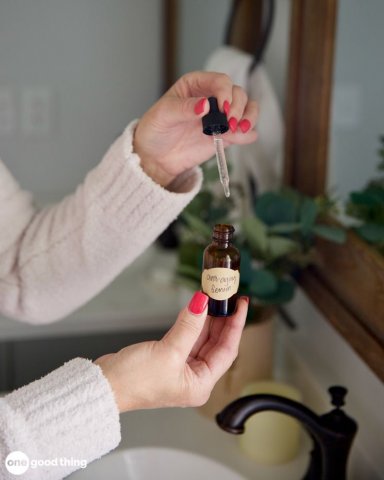
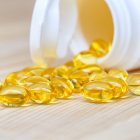
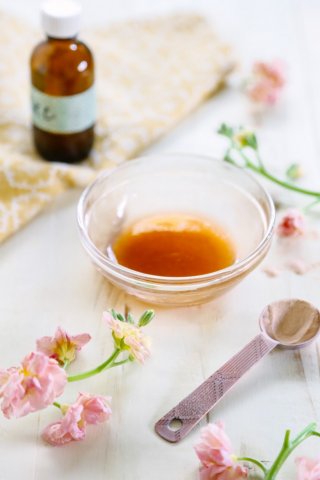


 Highlight the Best Facets of Your Incomparable Beauty: Discover the Best Face Highlighter Currently Available in India and Everything You Need to Know About Using Face Highlighters for Maximum Effect (2023)
Highlight the Best Facets of Your Incomparable Beauty: Discover the Best Face Highlighter Currently Available in India and Everything You Need to Know About Using Face Highlighters for Maximum Effect (2023)
 Forget the Blemishes and Get that Picture Perfect Flawless Radiance on Your Face: Check out the Best Foundations for Oily Skin Currently Available in India and Everything You Need to Know About Makeup Foundations (2023)
Forget the Blemishes and Get that Picture Perfect Flawless Radiance on Your Face: Check out the Best Foundations for Oily Skin Currently Available in India and Everything You Need to Know About Makeup Foundations (2023)
 Make Your Presence Felt Wherever You Go: Discover the Best Perfumes Under 2000 for Both Men and Women to Announce Your Arrival and Make Any Occasion Memorable (2023)
Make Your Presence Felt Wherever You Go: Discover the Best Perfumes Under 2000 for Both Men and Women to Announce Your Arrival and Make Any Occasion Memorable (2023)
 Protect Your Oily Skin from the Harmful Rays of the Sun: Discover the Best Gel Based Sunscreens for Oily Skin and Everything You Need to Know Before Buying One (2023)
Protect Your Oily Skin from the Harmful Rays of the Sun: Discover the Best Gel Based Sunscreens for Oily Skin and Everything You Need to Know Before Buying One (2023)
 Minor Blemishes and Wrinkles Affecting Your Confidence? Check out the Best BB Creams to Conceal Your Worries and Nourish Your Skin to Restore the Healthy, Radiant and Glowing Complexion Back Again (2023)
Minor Blemishes and Wrinkles Affecting Your Confidence? Check out the Best BB Creams to Conceal Your Worries and Nourish Your Skin to Restore the Healthy, Radiant and Glowing Complexion Back Again (2023)
